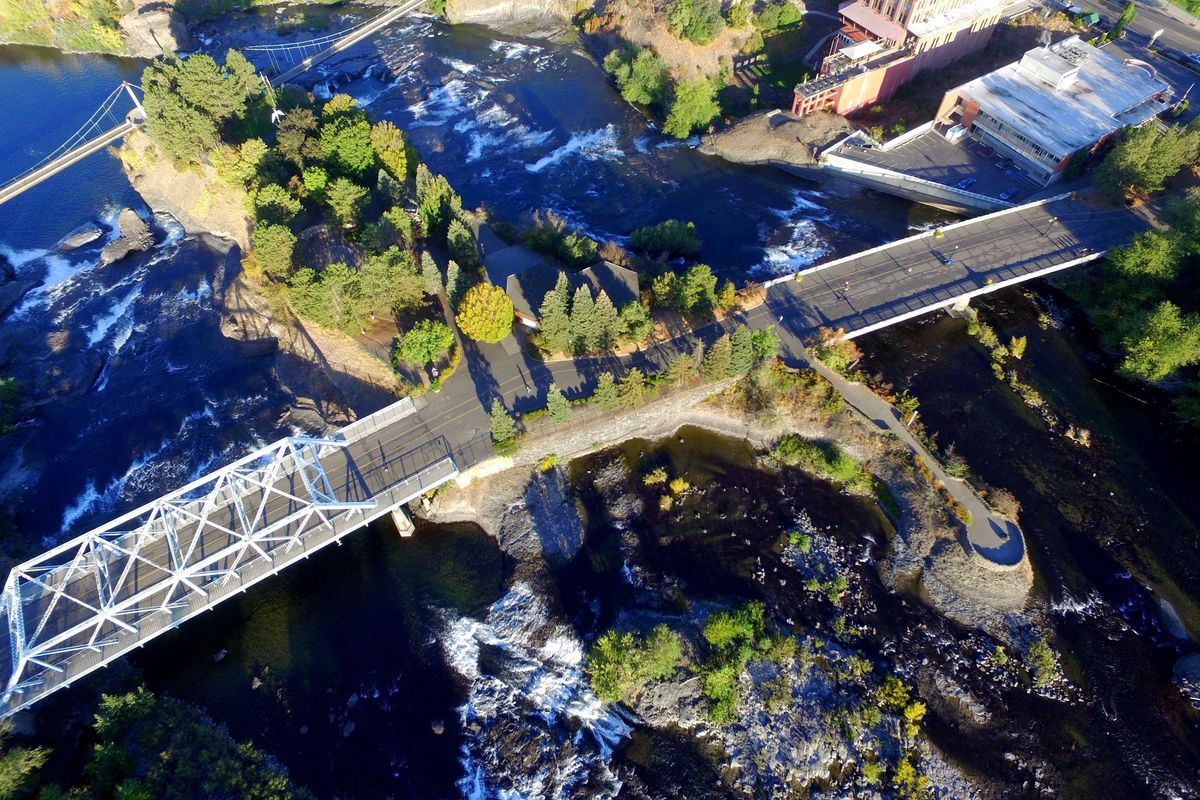Spokane Tribe submits two nominations for renaming Canada Island using native nouns

Spokane tribal members looked deeply into their heritage to find two suggestions suitable for renaming Canada Island in Riverfront Park.
One is translated as “salmon people.”
The second nomination means “a land that causes a fork in the river.”
Carol Evans, chairwoman of the business tribal council, told the Park Board that the tribe is glad to bring part of its native past into the present and future.
She said native culture was built around a creation story, and the two names evoke that heritage.
“We were known as the river people. We were known as the salmon people,” she said.
Park Board members said they will consider the two nominations at meetings next month.
The renaming of Canada Island is part of a huge park makeover launched by voters in 2014.
As part of that, the Park Board asked the tribe to come up with an appropriate Native American name for the island.
The Canadian government, which had its Expo ’74 amphitheater and playground on the island, has given its support.
One of two totem poles on the island was carved by a British Columbia tribal member.
The 2-acre island was at the upper reach of migratory salmon runs and was an important harvesting and trading location for native people.
Completion of Grand Coulee Dam blocked salmon from reaching Spokane.
An archaeological excavation at the confluence of the Spokane River and Latah Creek more than a decade ago uncovered proof that human habitation in Spokane dates back at least 8,000 years.
The dig was undertaken as part of a city sewer overflow tank project.
The location was traditionally used as an encampment site for hunting and harvesting fish.
Archaeologists paid by the city recovered 60,000 artifacts, including an obsidian arrow point made out of volcanic glass from Eastern Oregon, clothing needles made of bone and an adz blade cut from nephrite, a type of jade found in the Wenatchee area.
Spear tips known as Cascade points, used throughout the region from 4,000 to 8,000 years ago, were found in the oldest layers at the site. The finds confirmed that regional trade was part of the indigenous culture, according to a 2006 news story.
Tribal members have long been concerned about disturbance of the area, which is an undeveloped city park that is expected to remain that way.
The renaming, Evans said, “gives us a chance to tell our story.”
“I am glad they are willing to let us be part of the park.”
Evans said the name selected by the Park Board will be placed on an interpretive sign to help park goers understand what the words mean and also help them with pronunciation through phonetic symbols.
Native Americans had oral language, but not a written one, so translating the words orally back into English is a challenge.